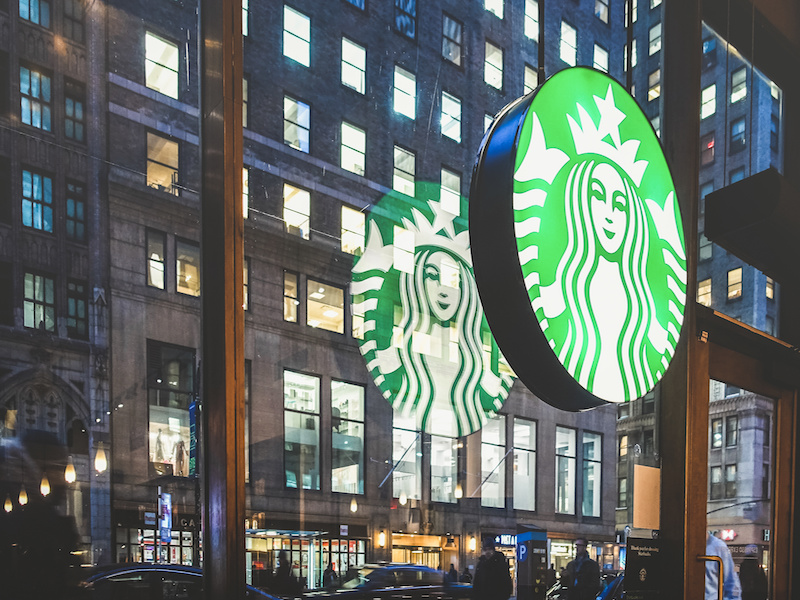

Starbucks Corp. workers at a store in Buffalo, N.Y., voted to unionize on Thursday, a first for the 50-year-old coffee retailer in the U.S. and the latest sign that the labour movement is stirring after decades of decline.
Starbucks has shown a willingness to bargain outside of the U.S. In Victoria, B.C., workers at a Starbucks store voted to unionize in August 2020. It took Starbucks and the United Steelworkers union nearly a year to reach a collective bargaining agreement, which was ratified by workers in July.
In a letter to Starbucks’ U.S. employees this week, Kevin Johnson, Starbucks’ president and chief executive officer, reminded them of the company’s generous benefits, including paid parental and sick leave and free college tuition through Arizona State University. Late last month, the company also announced pay increases, saying all its U.S. workers will earn at least US$15 — and up to $23 — per hour by next summer.
Read: Indigo workers unionizing for enhanced benefits, paid sick days
But backers of the union say Starbucks can do more. Johnson earned $14.7 million in salary and stock awards in the company’s 2020 fiscal year. “If Starbucks can find the money to pay their CEO nearly $15 million in compensation, I think maybe they can afford to pay their workers a decent wage with decent benefits,” said U.S. Sen. Bernie Sanders, a Vermont independent, in a recent Twitter post. Sanders held a virtual town hall with Buffalo Starbucks workers earlier this week.
The National Labor Relations Board said Thursday that workers voted 19-8 in favour of a union at the Elmwood Avenue location, one of three stores in Buffalo where elections were being held. A second store rejected the union in a vote of 12-8, but the union said it might challenge that result because it wasn’t confident all of the eligible votes had been counted. The results of a third store couldn’t be determined because both sides challenged seven separate votes.
Read: Starbucks Canada giving staff temporary paid sick leave, raising wages
Starbucks and Workers United, the union vying to represent the workers, have five business days to submit their objections to the election results, said the labour board. If objections are filed, there could be a series of hearings and appeals that delay certification of the votes. If no objections are filed, the results could be certified as early as Dec. 16.
If the labour board certifies the results and one or more of the stores unionizes, they would be the first Starbucks-owned stores in the U.S. to be represented by a union. The company has actively fought unionization at its stores for decades, saying its stores function best when it works directly with employees.
The election comes at a time of heightened labour unrest in the U.S. Striking workers at Kellogg Co. rejected a new contract offer earlier this week. Thousands of workers were on strike at Deere & Co. earlier this fall. And the U.S. labour board recently approved a redo of a union vote at an Amazon warehouse in Alabama after finding the company pressured workers to vote against the union.
Read: Majority of Amazon workers at Alabama warehouse vote not to unionize
Labour shortages are giving workers a rare upper hand in wage negotiations. Dan Graff, director of the Higgins Labor Program at the University of Notre Dame, says the coronavirus pandemic gave many workers the time and space to rethink what they want from their jobs. Starbucks spokesperson Reggie Borges said the company hasn’t yet determined its next steps, but noted that there were close votes at two of the Buffalo stores.
“Yes” votes could accelerate unionization efforts at other U.S. Starbucks stores. Already, three more stores in Buffalo and a store in Arizona have filed petitions with the labour board for their own union elections. Those cases are pending.
Kent Wong, the director of the UCLA Labor Center, says that it’s a big deal for even one Starbucks location to vote for a union, calling it “a symbolic victory for the labour movement.” Wong notes it could not only galvanize workers at other Starbucks locations but also at fast-food chains. “People are looking at what is happening in Buffalo.”
Read: Starbucks Canada perking up benefits, pay amid ‘critical staffing shortages’
But Matthew Dimick, an associate professor of law at the University of Buffalo, noted the city has a long tradition of labour organizing from its industrial past. “Most Buffalonians probably see unions as a positive and are therefore more willing to join and form unions than in other parts of the [U.S.].”
Meanwhile, Starbucks Canada announced in October it was raising wages and benefits amid “critical staffing shortages” and a renewed commitment to the well-being of its workers.
